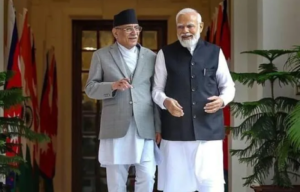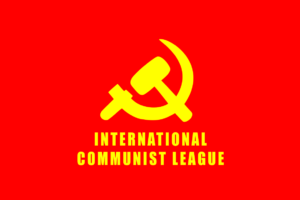
Indigenous people protest against the land-robbing ‘Marco Temporal’ law in Brazil
Guarani people blocking the Bandeirantes highway in the State of São Paulo in protest against the ‘Marco Temporal’ law.
On the 30th of May the National Congress of Brazil approved a new law draft, officially named PL 490 or PL 2903, or the Marco Temporal (Timeframe), which would deny indigenous people their claims to their ancestral lands if they cannot prove that they have been inhabiting the land before 5th of October 1988, when the current constitution of Brazil came into effect. The law was handled as urgent by the approval of the Lula government. This is the biggest privatization of land in the history of Brazil in the interest of the large landowners. The law will now move on to the Senate. Large protests followed the approval across the country.
The popular and democratic newspaper A Nova Democracia points out that indigenous people have been violently driven away from their lands multiple times by large landowners and corporations, which makes it hard to prove a constant occupation of land. Indigenous organizations have criticized the law for erasing the history of the indigenous people before 1988, as well as ignoring the violence they have faced. AND writes that the time frame of 1988 is completely absurd in regards to who has claim to the land, and is just a legal thesis to justify the land robbing. The Supreme Court of Brazil was supposed to give a ruling on the constitutionality of the law on the 7th of June, but the judge asked for more time to consider the issue, giving also the lawmakers more time to pass the law before the ruling.
On the day of the approval of the law in the congress, protests by various indigenous peoples followed in at least ten federal states of Brazil, with the central demand of land for the indigenous people. In São Paulo the Guarani people blocked the Bandeirantes highway, and faced heavy repression from the military police, who attacked the protest with water cannons, tear gas and pepper spray. In the north-eastern federal states of Ceará, Bahia and Maranhão multiple highways were blocked for hours. In the northern Rondônia, Pará, Amazonas and Acre there was protests as well. In Rondônia, the state’s main highway was blocked by protesters, who built burning barricades of logs and tires. In the south-western part of Pará, in the municipality of Bom Jesus, there was protests with burning barricades as well, and the highway BR-222 was blocked for over three hours. Also in the capital city of Pará, Belém, protests took place. The Transamazônica Highway was blocked in Amazonas and in Acre, posters against the new law were distributed. In the Federal District indigenous peoples marched to the National Congress, carrying banners against the law. In Mato Grosso, protesters of the Kayapó people blocked the BR-322 highway and the passage of a ferry on the Xingu River. In the southern state Rio Grande do Sul highways were blocked by protesters as well.





On June 4th a large protest took place in Pirituba, North Zone of São Paulo against the law and for land. The protesters also denounced the repression and constant threats carried out by the military police against protesters at the blockade of the Bandeirantes highway. Also the decision of the Court of Justice of São Paulo which ruled that further protests on the highway are forbidden, and authorized the military police to prevent any new attempts, was condemned. A speech in the end of the demonstration stated that “we will have no other option if this PL [law] falls on us than to respond with war”. Also the members of the sales brigade of AND were present, denouncing the crimes of the State against the people and defending the right to protest.




The law will now move on to be approved by the Senate and ultimately sanctioned by president Lula. Lula and his government have been criticized by indigenous activists for not speaking against the law despite his campaign promises of protecting the indigenous people, and ”righting the wrongs” of Bolsonaro. AND also points out that the law was handled as urgent under the consent of the Lula administration.

